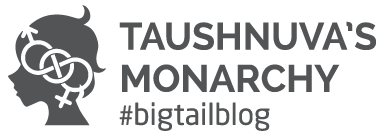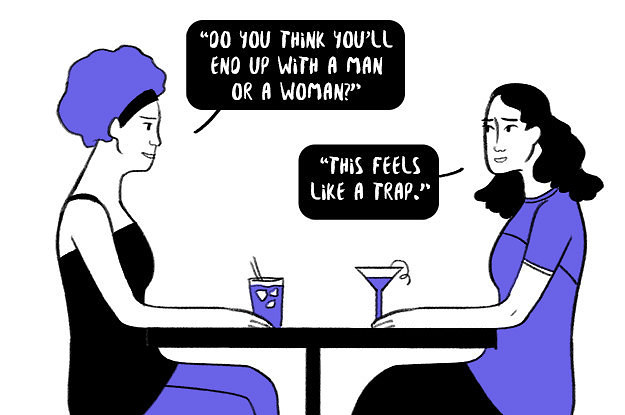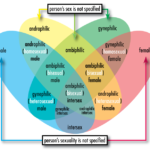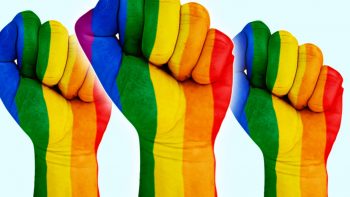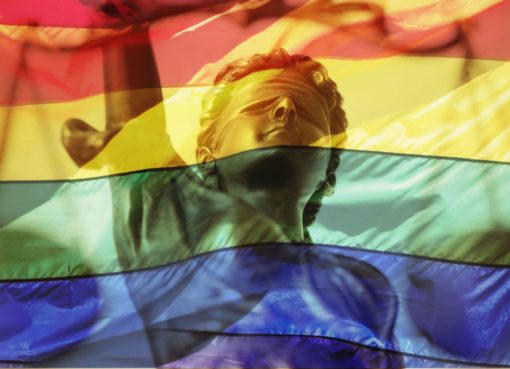 Today, I am confidently bi, I’m openly poly, and I proudly tell people about the wonderful world of kink that I’m able to be part of. I definitely didn’t start out this confident though. My journey to accepting my sexual identity was, like it is for many of us, messy. But it was more than that, I’d call it a train wreck with all of the broken hearts and guilt that I carried over things I didn’t even want to feel.
Today, I am confidently bi, I’m openly poly, and I proudly tell people about the wonderful world of kink that I’m able to be part of. I definitely didn’t start out this confident though. My journey to accepting my sexual identity was, like it is for many of us, messy. But it was more than that, I’d call it a train wreck with all of the broken hearts and guilt that I carried over things I didn’t even want to feel.
But everyone knows about how hard it is to come out in a small, overly-judgemental town like Medford, OR., so I won’t drone on about that. I would rather tell you about the time immediately after that. I was still a teenager, and trying to make sense of myself with very limited resources and an atrocious lack of comprehensive sex ed. All of this in a place where you’re expected to be straight, monogamous, and sexually unadventurous in general. I live in a very “Don’t Ask, Don’t Tell” area. Which, let’s be honest, was not the most nurturing environment for a polyamorous bi who is kink-friendly. I didn’t know what any of those words meant, or even that they even existed.
I even questioned my own bi-ness for a long time. Any time I had any interest in women it was quickly fetishized by any straight male in the vicinity, and that made it hard to accept that my attraction was authentic. Wasn’t I just doing this for the praise of men? Wasn’t I seeking attention from them and not actually experiencing what I believe I’m experiencing? I was so often told my behavior was attention seeking and (I hate to use this term negatively because I do not view it as such) “slutty.”
As I struggled with this concept I began to shrink myself; I wanted to be the opposite of what everyone stereotyped me as. I didn’t want to be like the other “bi girls” that I was warned I would become, and that led to the thing I regret most: attempting to change myself to fit someone else’s notions of who I should be.
I put myself in a box, and caused a lot of misery. Let’s start with the first heart that was broken–mine.
My very first real relationship, my first love was one of my closest friends, we’ll call her N.C. I was head over heels for this girl in a way that only a pubescent teenager could be. I drew pictures of her, memorized a song I dedicated to her and sang it to her, and wrote her poems. I even had silly fantasies about us growing old together. It wasn’t the same for N.C., though, and I can’t blame her for exploring her sexuality. I just wish I hadn’t been the one caught in the crossfire. For me, her breaking up with me and telling me she wasn’t really “into women” was affirmation that being attracted to girls was not something I wanted. You know how that first heartbreak goes.
I went on to completely deny that side of myself for a while. I tried to only be with boys, and see the girls I was attracted to platonically. For that time I hopped from guy to guy trying to never feel anything. I even dated a few guys that were okay with me being with women as long as they were under the impression it was for their amusement, even though it wasn’t. I guess I was trying to prove I was just like any other heteronormative girl messing around with her friends despite it tearing me up inside.
You can’t shut off your heart, and I couldn’t keep things superficial or experimental forever. I had real feelings for the women I was messing around with and I couldn’t even tell them. I wanted to prove I was just having fun. These were just stories to tell our boyfriends. Right?
It was a period of time where any time anyone asked anything about being bi I had a quick rebuttal of, “Bisexual people aren’t like that!” which really was me trying to prove that I wasn’t like that. Even though some of the time they were spot on about how I felt, and I was ashamed of that.
I started to step out of that box over time when I could see N.C. walk down the halls of our school and not feel my heart breaking (high school is so dramatic). Slowly I began to accept the title of bi because I realized those feelings weren’t going to stop interrupting my life. Of course, I got the usual questions:
“So, if you’re bi you must like threesomes?”
“You’ve probably slept with a lot of people because, you know, you’re bi and all.”
“Can you even be with just one person? Since you’re bi?”
“Would you sleep with me and my girlfriend?”
“You’ve had, like, a bunch of orgies, huh? Haha.”
“I bet you just like to party a lot. I heard girls who are bi are, like, super slutty party animals.”
“Do you do a lot of kinky/BDSM stuff if you’re bi?”
Still, I had the same rebuttal, and I wanted to badly to prove that I wasn’t like that. Because being stereotypical is bad…isn’t it? I tried to have a steady boyfriend, but it’s hard to stay monogamous when you aren’t. That is in no way an excuse for how I was then, and it will never excuse how many people I hurt in my process of figuring out who I am.
Let me tell you, though, discovering that magical thing called polyamory at a party when I was eighteen was like my whole world being shattered and unfogged at the same time. It took me eighteen years to discover I wasn’t broken because I couldn’t love just one person, I just wasn’t monogamous, and that was completely okay. What a wild concept, huh?
I think that’s the weight I needed lifted off my shoulders in order to let go of the guilt I’d been carrying as a way to justify the way I was being treated, leave my toxic, confining relationship, and accept myself as a stereotypical bi who takes control of their sexuality. That was my feminist “I can be anything I want to be and still be a woman” awakening. I like parties and being unabashedly myself. I am allowed to wear the scarlet letter S and embrace the title of slut as not being ashamed of enjoying sex and having multiple partners in and out of the bedroom because I’m poly. I’m allowed to be as kinky and weird as I want because it’s my experience. (The next random person to message me on a social media platform and ask me to sleep with him and his girlfriend may get some very strong words about it, though. Just saying).
I am allowed to be the stereotypical bi because being bi isn’t why I am any of the other things I am, and it isn’t my job to make other people realize that bi is a part of my identity along with all of those other things. I’m not going to be the person who shows everyone that bi people aren’t like that, and I’m okay with that.

